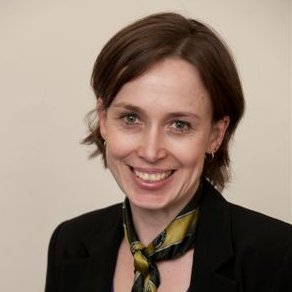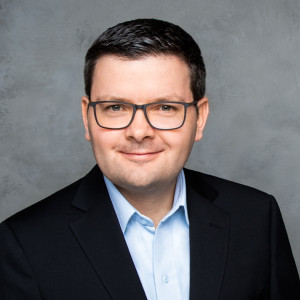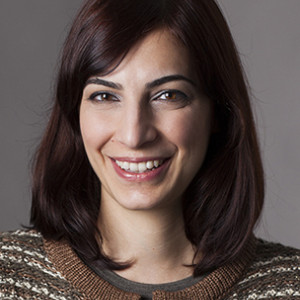The Standing Committee Meth@Mig provides a forum for discussing methodological approaches and tools in migration research and assessing the best options available for tackling manifold methodological challenges. The Standing Committee takes on a pluralist perspective as it addresses (1) issues relevant across a wide range of research methods in migration studies, such as obtaining informed consent in cross-cultural settings, gaining access to hard-to-reach populations, operationalising relevant concepts, and leveraging the potential of new communication technologies, as well as (2) issues relevant for specific research approaches (be they quantitative, qualitative, mixed-methods or experimental) as applied to the study of international migration in all its facets and dimensions.
Due to its transversal methodological profile, Meth@Mig is uniquely suited to cooperate with various other IMISCOE Standing Committees that are mainly defined by substantive research agendas. Such cooperation may, for instance, consist of jointly organised events or publications. The Standing Committee places special emphasis on sharing innovative procedures and on interconnecting researchers from different methodological schools as well as migration scholars and experts in research methodology.
The Standing Committee aims to become a reference-point for methodological reflections in the migration research community within and beyond IMISCOE.
Coordinators

Agata Górny (Co-chair)
Faculty of Economc Sciences, University of Warsaw, Poland

Steffen Pötzschke (Co-chair)
GESIS – Leibniz-Institute for the Social Sciences , Germany
Names and institutional affiliations of (key) members
To be completed.
Apply for Meth@Mig
Please log on first to visit the application form
Agenda of activities
Meth@Mig was established in October 2019 and plans to develop activities in three broad categories: research promotion and publications, training, and network management.
- Research promotion and publications
Once travel restrictions and distancing rules triggered by the COVID-19 crisis are phased out, the Standing Committee plans to organize three international workshops (2020-2023), focusing on (1) opportunities and challenges related to new and innovative research methods in migration studies, (2) issues relevant for quantitative methods, and (3) issues affecting qualitative studies, respectively. Furthermore, the Standing Committee will sponsor sessions at each IMISCOE annual conference addressing various methodological issues in qualitative, quantitative, and mix-methods migration research, whatever the conference format (physical or virtual). Our agenda for prospective publications includes the submission of special issue proposals peer-reviewed journals (based on the aforementioned methodological workshops), edited volumes, and a textbook on quantitative methods in migration studies. - Training
The Standing Committee aims to prepare PhD students and junior researchers to better navigate the highly varied, and at times confusing, research methods landscape. To this end, Meth@Mig aims to develop cooperation with the IMISCOE PhD Network with a view to offering PhD training sessions at IMISCOE annual conferences and summer schools. The Standing Committee also plans to promote accessible knowledge on methods via its online presence (videos, podcasts, blog entries, social media) as a part of our planned Research Methods Kitchen. - Network management
The Standing Committee will organize formal Standing Committee meetings at the IMISCOE annual conferences. In between the annual conferences, the Standing Committee will actively use electronic communication channels and the allocated webpage space on the IMISCOE’s website.
Methods kitchen
Annual Meth@Mig Workshops
2024: Participant recruitment strategies and sampling methods in migration research, April 25-26, 2024. GESIS – Leibniz Institute for the Social Sciences, Mannheim. Keynote: Aneta Piekut (Sheffield Methods Institute, University of Sheffield).
This workshop offered a forum for scholars to present and discuss procedures they use to recruit research participants and implications that these procedures might have for the research process. We welcomed contributions from any methodological school or angle, e.g., qualitative, survey-based, mixed, or relying on digital trace data.
The workshop booklet is available
pdf
here
(1006 KB)
.
Fatıma Silpağar authored a short report about this event for our Meth@Mig Blog.
Based on her contribution to the event, Lori Wilkinson authored the text "What Research Ethics Boards know and don’t know about research with refugee populations" for our Meth@Mig Blog
2023: Identifying and mitigating bias in migration research, March 30-31st, 2023. Institute for Advanced Social Studies (IESA-CSIC), Córdoba. Keynote speaker: Melanie Revilla (IBEI. Institut Barcelona Estudis Internacionals)
This workshop offered scholars a forum to present and discuss procedures and safeguards that help recognize and/or reduce biases in data produced and/or used for migration research purposes.
The workshop booklet is available pdf here (710 KB) .
2022: Digitization of Migration Research Methods: Promises and Pitfalls, 30 May, 2022. University of Warsaw, Center of Migration research. Keynote speaker: Ingmar Weber (Qatar Computing Research Institute).
This workshop aimed to identify and reflect on the promises and pitfalls of the digital revolution for migration studies across their different methodological currents, including data science, survey research, and qualitative approaches, as well as their various combinations.
The workshop booklet is available pdf here (982 KB) .
A recording of the keynote speech delivered by Ingmar Weber is available on our YouTube Channel here.
Migration Studies Methods Trouble Shooting Series
You are having a methodological challenge you can’t resolve? You are stuck in your methods framework? You are looking for input and inspiration? Whether it's the qualitative interviews that aren’t working out as you had thought or the sampling issue you can’t find a solution for, the IMISCOE Standing Committee Meth@Mig invites you to talk it through with your peers at our trouble-shooting session.
Meth@Mig Trouble Shooting sessions are held online and take place at various occacsions throughout the year. Dates are announced on our website, through social media and our mailing list (SC members only). This series is organized and moderated by
Hannah Pool
. Previous sessions were held on February 28, 2023 and June 27, 2023.
Other Events
Workshop: Ethical Issues in Migration Research, 18 May, 2022 (online). Organized in collaboration with the ECPR Standing Group Migration and Ethnicity. Speakers: Evren Yalaz and Justyna Salamońska.
On May 18th 2022 IMISCOE Meth@Mig Standing Committee held a joint workshop with the ECPR Standing Group Migration and Ethnicity on Ethical Issues in Migration Research. The workshop took place online.
Migration research can raise particular ethical challenges, as it often involves studying individuals and groups in vulnerable positions. Although ethical concerns apply to research in general, they may be even more relevant when considering the unique vulnerabilities that migrants may be subject to and the highly sensitive nature of migration issues in political and public debates. The choices and dilemmas that appear prior or during fieldwork, both for quantitative and qualitative researchers, often require careful reflection and sensitivity to the specific contexts. Textbooks offering ethical guidelines - though a necessary starting point - often do not adequately address specific ethical dilemmas encountered case-by-case. Developing an ethics radar in migration research highly benefits from discussions with researchers experiencing similar challenges and looking for solutions to migration- specific ethical concerns.
The Workshop welcomed scholars confronted with/interested in ethical challenges in migration research, and it particularly encouraged participation from doctoral students and early career researchers. Through hands-on practices and group discussions, participants reflected on and directly engaged with questions such as: Do migration researchers deal with specific ethical dilemmas that are often not covered by general social science ethics codes? How can we deal with these ethical questions when conducting research? Do ethical concerns vary depending on the main research methodology? Can there be standardized ethical codes of conduct in migration research? Or do migration researchers need to consider ethical issues case-by-case in a context-specific way?
Workshop slides are available pdf here (1.51 MB) .
Workshop: Ethics and Privacy of Big Data Use for Migration Research, 7-8 October, 2021 (online). Organized in collaboration with the HumMingBird consortium and the SoBigData++ consortium.
This workshop aims at bringing together researchers and practitioners from various disciplines and sectors who work on theoretical, philosophical, legal and ethical aspects of Big Data possibly with a focus on migration; Big Data and new technologies for migration studies; real-life applications and socio-political consequences of Big Data and AI employment for migration to discuss and present their experience, knowledge and research on the topic.
Publications
Available
- Migration Research in a Digitized World: Using Innovative Technology to tackle Methodological Challenges, volume edited by Steffen Pötzschke and Sebastian Rinken (2022), IMISCOE Research Series, Springer.
- Qualitative Methods in Migration Research (Ricard Zapata-Barrero and Evren Yalaz) & Quantitative Methods in Migration Research (Justyna Salamońska) in Introduction to Migration Studies - An Interactive Guide to the Literatures on Migration and Diversity, volume edited by Peter Scholten (2022), IMISCOE Research Series, Springer.
- Contested Concepts in Migration Studies, volume edited by Ricard Zapata-Barrero, Dirk Jacobs and Riva Kastoryano (2021), Routledge Series on Global Order Studies.
- The Practice of Qualitative Research in Migration Studies: Ethical Issues as a Methodological Challenge, Qualitative Research Journal, Volume 20 Issue 3 (2020) - Special Issue edited by Ricard Zapata-Barrero and Evren Yalaz.
In preparation
- Quantitative Methods in Migration Studies by Agata Górny and Justyna Salamońska, IMISCOE Short Reader series, Springer.
Video series
The following video are part of our series “Digitization of Migration Research Methods: Promises and Pitfalls”. This video series aims to stimulate debates on advantages, disadvantages, and challenges that the emergence of new methods and the availability of new data types entail for migration research and migration scholars worldwide.
Please klick on the links to watch the videos on Youtube.
“Digital trace data can never be used on its own” - An interview with Albert A. Salah (January 18, 2021)
Digitization of Migration Research Methods – An interview with Marzia Rango (July 8, 2020)



